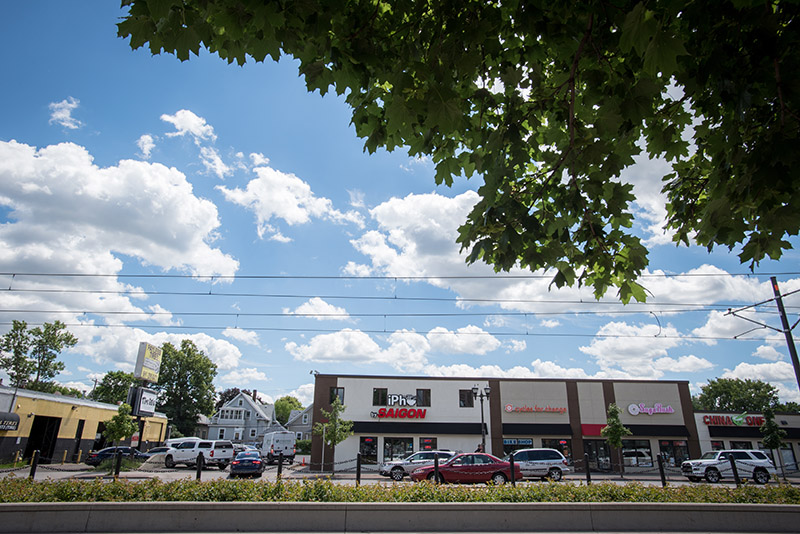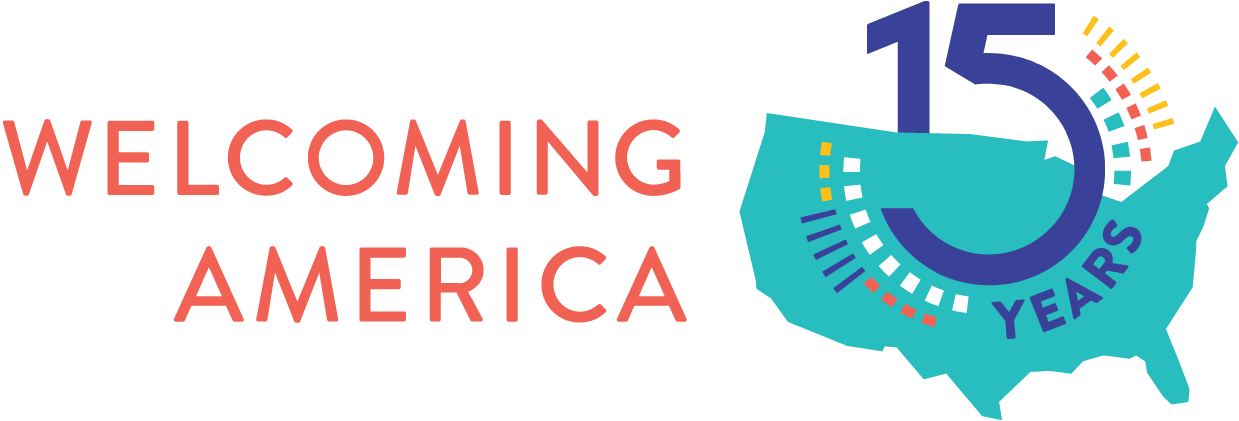
Strengthening neighborhoods from within
Becky Xiong takes a tiny knife and carves the word “congratulations” into the side of a watermelon. She’ll complement that with cantaloupes cut to resemble shooting stars.
Her work is popular with Hmong-Americans, who order tables full of sculpted fruit for presentations and parties.
“I had been helping family and friends and churches who wanted fruit carvings for events,” says Becky, the owner of PAJAI Fruit Arrangements and Bakery in St. Paul, Minnesota. “I thought, ‘Wow. There’s so much need out in the Hmong community.’ Everybody always wants their event to be better than everybody else’s. That’s how I got the idea for this business.”
PAJAI is just one of the hundreds of immigrant-owned businesses to get a boost from the city’s Neighborhood Development Center. NDC’s goal is to revitalize distressed communities. And it achieves that by empowering aspiring entrepreneurs.
“It’s very much a ripple effect strategy,” says Mihailo Temali, founder and CEO of the non-profit organization. “Neighborhoods really matter to people. Strong neighborhoods need strong businesses.”
Since 1993, NDC has championed non-traditional business owners. They’re people who dream of running a store, but have no management or bookkeeping experience. They’re people who have a great concept for a company, but lack the credit score or collateral to get a bank loan. They’re exactly the people NDC wants to have as clients.
“We try to invest in the people who live in the neighborhood already,” says Mihailo. “It’s great when neighborhoods grow from the inside.”
The organization offers workshops on everything from cash flow to inventory control. It teaches wannabe entrepreneurs how to write business plans. And it provides loans — ranging from a couple hundred dollars to a quarter of a million — to those who show the most promise.
“We’ve worked with hundreds and hundreds of businesses. They’re everything from a barber shop to funeral homes,” says Isabel Chanslor, NDC’s chief program officer. “We’re here to help people achieve their dream.”
NDC has trained at least 5,000 potential business owners. It currently supports over 600 businesses. And those businesses employ more than 2,200 people.
“We’re trying to create this whole new mindset and perception, not just for individuals, but for an entire community to change the mindset,” says Mihailo. “We don’t want kids walking to school thinking their only options are being a sports star or a rapper or a gang banger. If they walk by five African-American-owned businesses or Latino-owned businesses every day, that can get them thinking, ‘In this community, there are options and my own neighborhood is not a bad place to do something.’”
Lots of people talk about the need to transform struggling neighborhoods. NDC actually aids in the transformation.
Take Frogtown, an area of St. Paul once home to several swamps and lots of frogs. By the 1980s, it was populated by drug dealers and prostitutes.
NDC’s office is located on University Avenue, the community’s main street. In its early days, the organization was surrounded by strip clubs and adult movie theaters.
“The neighborhood was boarded-up buildings,” says Mihailo. “It had nothing but businesses leaving and people leaving. And a lot of crime.”
Mihailo’s first step was to fill the empty storefronts.
“Over half of our entrepreneurs are in previously vacant buildings,” says Mihailo. “Improving the streetscape, it brought the surrounding neighborhood up a few notches.”
Immigrant-owned businesses, many backed by NDC, now line University Avenue.
“You can’t even recognize it anymore. It just really is a different street,” says Isabel. “The new narrative here in Frogtown is that it’s a growing, diverse, welcoming place. It’s a jewel for us.”

Businesses in St. Paul’s Frogtown neighborhood.
Today the commercial corridor is alive with Vietnamese restaurants and Mexican supermarkets. Mom-and-pop shops sell everything from halal goat cutlets to Peruvian yellow-pepper paste.
“Every day I get to interact with entrepreneurs from all corners of the world,” says Mihailo. “Walking down the street is like traveling the globe.”
NDC has assisted everyone from East African refugees to Latin American immigrants. One by one, says Mihailo, they revitalized the neighborhood others once deserted and dismissed.
Frogtown refutes the argument that immigrants are taking jobs from native-born Americans. Studies show that the nation’s newest residents are creating jobs across the United States. Immigrants start businesses at a higher rate than those who were born in this country. And 40 percent of Fortune 500 companies were founded by immigrants or their children.
“It’s a great feeling seeing NDC-assisted entrepreneurs taking risks, providing jobs, adding to the community,” says Isabel. “Our clients represent a full range of folks. But what holds them all together is just this passion of theirs to do what they know is right for them and for their family. Legacy is always something that comes up, creating a legacy for their children. Working here, I get really attached to these people. I’m a crier and I definitely cry when they open their businesses.”
Isabel has been to countless grand openings But, she says, NDC’s role doesn’t end at the ribbon cutting. While the organization is best known for launching businesses, keeping them going is equally essential.
NDC provides entrepreneurs continuing support, from legal advice to help securing state permits. It offers logo creation, website design and marketing assistance. And, perhaps most importantly, it believes in people who are working hard to accomplish their goals.
That encouragement has meant the world to Becky Xiong.
“It’s very important to have community support like NDC,” says Becky, standing in the middle of her year-old-business. Slices of pandan sponge cake fill the glass display case. Large photos of her elaborate fruit carvings dot the wall. “If I need something, they’re always there to help. NDC, it’s like my backbone.”

